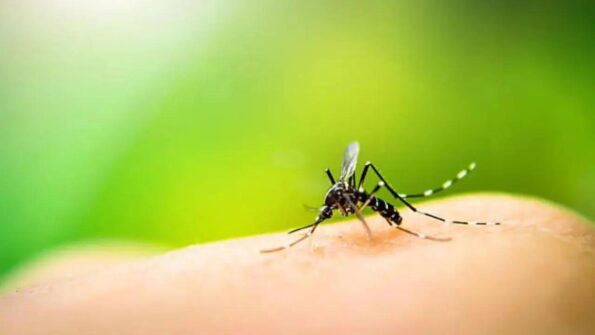WHO issues guidelines for clinical management of dengue, chikungunya

In a first, the World Health Organization (WHO) has published guidelines for the clinical management of patients with suspected or confirmed arboviral diseases, such as dengue, chikungunya, Zika, and yellow fever.
Arboviruses have become a growing public health threat, putting over 5.6 billion people at risk. Once limited to tropical and subtropical climates, the Aedes mosquitoes that transmit these diseases are spreading to new regions due to climate change, population growth, increased travel, and urbanisation, increasing the risk of outbreaks.
While early detection and treatment are key for better outcomes, diagnosing these diseases “can be challenging as their symptoms often overlap and resemble other febrile illnesses,” said the WHO.
“In addition, in some regions, multiple arboviruses may circulate at the same time, making clinical diagnosis even more challenging, especially where testing is limited,” the WHO added.
The global health body launched the new guidelines while stressing the need for “clinicians to recognise these diseases and treat patients according to the latest, evidence-based guidance”.
Designed to help healthcare providers, the guidelines will help them give patients the best possible care to prevent severe disease and death.
It includes recommendations to healthcare providers for the management of patients with both non-serious and serious arboviral illnesses requiring hospitalisation.
The guideline can be applied at all levels of the health system, including community-based care, primary care, emergency departments, and hospital wards.
It also provides recommendations on treatment the choice of fluid management and measurements to guide fluid administration; and treatment with adjunctive therapies for patients with yellow fever.
“The guideline will also serve as a reference source for policymakers, health managers, and health facility administrators to support the development of national, regional, and local guidelines for epidemic and pandemic preparedness,” the WHO said.
This story has been sourced from a third party syndicated feed, agencies. Mid-day accepts no responsibility or liability for its dependability, trustworthiness, reliability and data of the text. Mid-day management/mid-day.com reserves the sole right to alter, delete or remove (without notice) the content in its absolute discretion for any reason whatsoever
Search
Recent
- Over 50 Dragonfly, Damselfly Species Documented at Belvai Odonata Workshop
- Work on skill devpt centre incomplete
- 60 cases against them, how gang orchestrated series of house robberies in NCR
- Shukla, Ax-4 crew expected to undock from ISS on July 14: Nasa
- AI crash: Prelim probe report says ‘Fuel to engines cut 3 secs post liftoff’- last moments unveiled





